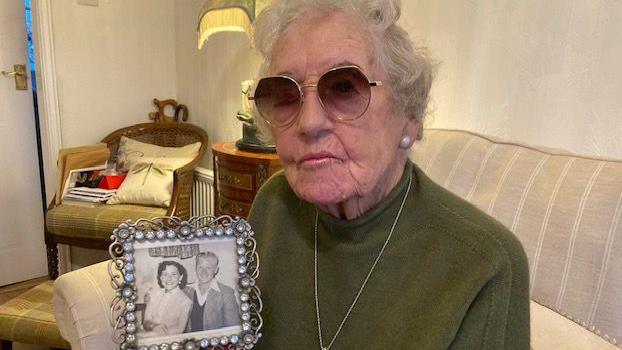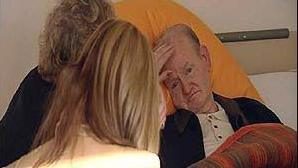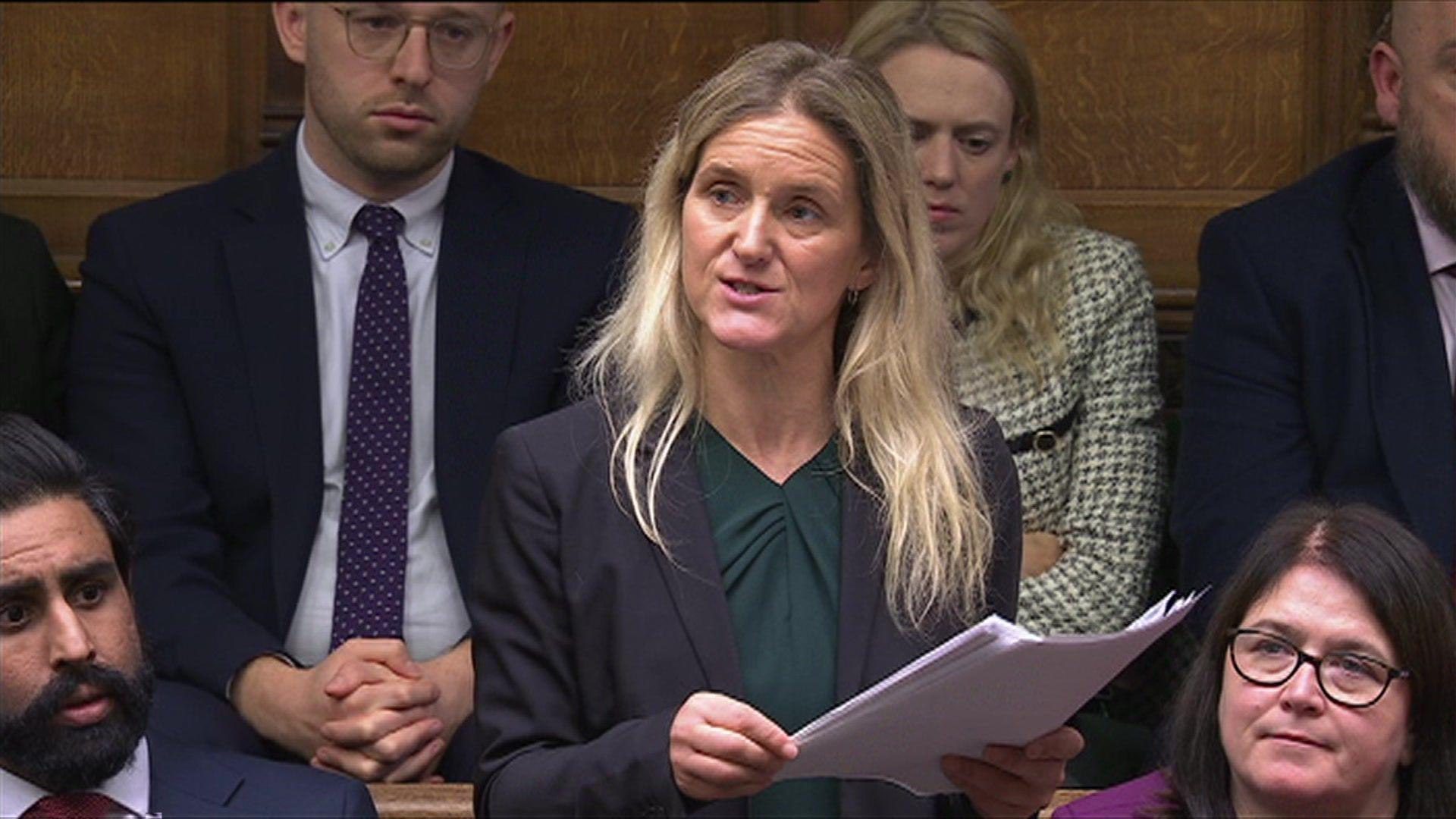UK's first Dignitas widow hails assisted dying vote

Win Crew promised her husband she would campaign for a change in the laws around assisted dying
- Published
The widow of the first Briton to end their life at the Dignitas clinic in Switzerland said she felt "absolutely wonderful" after MPs voted in favour of a bill to introduce assisted dying.
Win Crew, from Liverpool, was speaking after the Assisted Dying Bill was passed in the House of Commons by 330 votes to 275, a cross-party majority of 55.
In 2003, Mrs Crew travelled to Zurich with her husband Reginald, who had suffered for four years with motor neurone disease (MND).
Beside his death bed, Mrs Crew, now 92, promised to campaign for a change in the law, and said she "never regretted the decision, because it's what Reg wanted."
'Life was hell'
Reacting to the vote, which paved the way for months of scrutiny of the bill before it becomes law, Mrs Crew said: "I feel absolutely wonderful, honestly.
"I can't tell you how glad I feel, because it's been such a long journey; more than 21 years since Reg died."
She described campaigning with her daughter, Jan, who has since lost her own husband to a neurological disease.
"My daughter and I were going down to London to the House of Lords virtually every weekend.
"It's alright for people who've never known someone seriously ill saying 'Oh, I don't know about that', but ask those who've had family or close friends with neurological disease.

Reginald Crew travelled to Switzerland to end his life in 2003
"They know they're going to die anyway, and my husband suffered for four years before we went to Switzerland," she said.
Mr Crew became aware of a procedure offered by the company Dignitas, an organisation which helps terminally ill people end their lives, after seeing a story on television about a woman planning to make the journey to the clinic.
Using a handsfree phone he found a way to contact the company to ask for dates he could visit.
"The moment he knew there was the opportunity to go he wanted to.
"My life was hell at the time, and when I was told about potentially going to prison I just said that would be a holiday camp compared to this.
"For months Reg couldn't go to bed. He would sit in his chair and say he was breathing but not living."
Mr Crew, who died aged 74, reportedly told nurses "I want to die today" before drinking water laced with barbiturates under the supervision of Dignitas.
Ms Crew added: "We never regretted what we did because that's what Reg wanted to do."
What happens next?
There are still many parliamentary hurdles for the Terminally Ill (End of Life) Bill must clear before it becomes law, with five stages handled by MPs and five more by peers.
If it successfully navigates this process, the law could change to allow some terminally-ill adults who are expected to die within six months to seek help to end their life.
Kim Leadbeater, the MP behind the bill, told the Commons there would a period of up to two years before any new law was implemented because "it is more important to get this right than to do it quickly".
Listen to the best of BBC Radio Merseyside on Sounds and follow BBC Merseyside on Facebook, external, X, external, and Instagram, external. You can also send story ideas to northwest.newsonline@bbc.co.uk, external and via Whatsapp to 0808 100 2230.
Related topics
- Published29 November 2024

- Published29 November 2024
